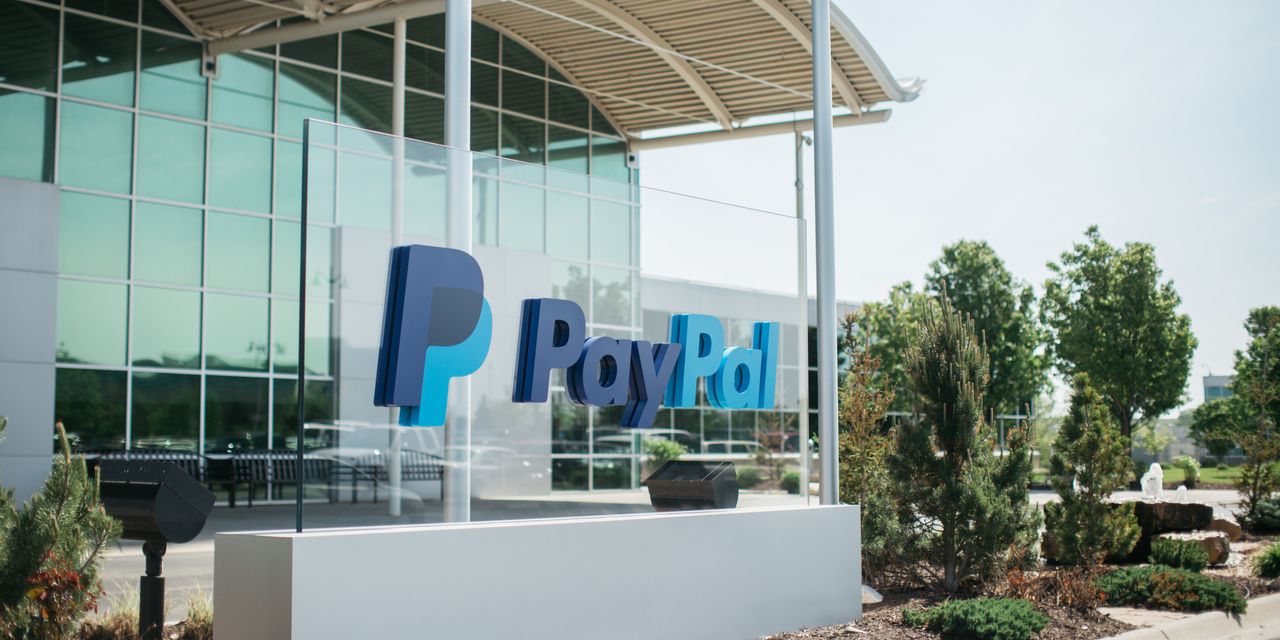PayPal Holdings Inc.
PYPL
shares have a “supportive” valuation after a recent slide, but the company may still face challenges stemming from pressure on the e-commerce industry, according to an analyst.
Redburn analyst Fahed Kunwar downgraded PayPal’s stock to neutral from buy Friday, warning of the potential for sluggish e-commerce trends that could impact the company’s ability to meet growth expectations. PayPal has already ratcheted down projections for the year, but Kunwar has doubts about whether the company can clear that lowered bar.
The stock is down 2.5% in Friday afternoon trading, and has lost 75% on a 12-month basis.
Read: Another Upstart bull jumps ship as company warns of revenue miss
Kunwar noted that consensus expectations tend to get an “anchor” from PayPal’s own guidance. “For a business that has historically met or exceeded guidance this has been a sound method for forecast,” he wrote. “But given management’s recent track record, consensus happily believing, as it does, that revenue growth for the second half of the year will rebound to 15% and [stay] at this level thereafter is challenging—particularly as e-commerce growth, which is [about] 90% of revenues for PayPal, continues to struggle.”
Though e-commerce growth in general boomed during the initial stages of the pandemic as people grew more comfortable shopping online, Redburn analysts see signs of an “increasingly mature online channel” in the U.S. and U.K.
“Whilst penetration will continue to grow it may well slow from here,” he wrote. “As such, with overall commerce growing at [about] 5%, a further 2% for cash-to-card conversion would suggest 7% growth in overall payment volumes and [about] 11-12% for online payment volumes,” he wrote. “Coupled with growth in Braintree and Venmo, we assume growth for PayPal in the medium term of between 12-13%, below consensus’s 15%.”
Kunwar likes the company’s free-cash-flow yield but argued that it is “hard to ignore e-commerce woes.”
He has concerns about the broader fintech universe, noting that “the sharp increase in cost of living” could prompt consumers to further cut back on discretionary purchases.
“For the next phase in this bear market, we will likely move from whipsawing multiples reflecting the changing rates expectations, to share prices being impacted by revenue downgrades reflecting the challenging growth environment,” Kunwar wrote generally of the fintech sector. “This second phase has not yet started.”
See also: Upstart stock plunges again after admitting it won’t hit disappointing forecast
